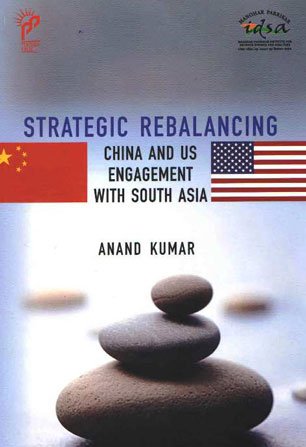The Evolving Politics of Taliban Reintegration and Reconciliation in Afghanistan
The subject assumes significance in view of the politics evolving around the idea of negotiating peace, especially with the Taliban, as the West plans to withdraw bulk of their troops by 2014. Though often regarded as flawed, ill-timed, regressive, wobbly, dangerous and unworkable, the idea has nevertheless come to dominate the discourse on the Afghan war. However, principal Afghan opposition forces and networks operating from Pakistan continue to publicly rebuff and mock at the government's initiative.
India–Bangladesh Land Border: A Flawed Inheritance and a Problematic Future
India shares 4095 kilometres of land and river boundaries with Bangladesh. The border is porous, criss-crossed by rivers and hilly and mountainous terrain which has made the guarding of this border extremely difficult. Border is a political construction. People living in the villages adjacent to the border do not subscribe to any concept of nationality or recognise the boundaries of the nation state. For the people living in the ‘borderlands’, a non-existent line bars them from leading the natural existence they have led for centuries.
Rajapaksa’s Sri Lanka: Time to Move Beyond Complacency
Much water has flown down the Mahaveli since the elimination of V. Prabhakaran and decimation of LTTE, the terror outfit he led, in Sri Lanka in May 2009. President Mahinda Rajapaksa cashed in on the situation well; he called for a new presidential election two years before expiration of his term and won it convincingly in January 2010. His party secured an easy and emphatic victory in the subsequent parliamentary elections, short of a two-thirds majority, in April 2010.
The Emerging Principle of the Responsibility to Protect: An Asian Perspective
In the aftermath of the Second World War and the horrors of the Holocaust, during which war crimes were committed on an unprecedented scale, the international community came together to declare ‘never again’ and set up the United Nations. Governments agreed that they would cooperate to prevent the commission of genocide and punish the perpetrators.
Pakistan’s Strategic Thinking
The strategic outlook of the political, bureaucratic and military elites in Pakistan was shaped by historical exigencies, geopolitical location, Pakistan's self-perception, and its Islamic credentials. Pakistan's military-dominated leadership formulated strategies towards regional and extra-regional powers based on its threat perceptions. The strategies adopted have not necessarily resulted in fully achieving the objectives for which they were formulated.
Afghan Reconciliation Falling Through
Various reports on ‘Progress Toward Security and Stability in Afghanistan’ produced by the US Department of Defense, 2010 (in coordination with some other departments) have struggled to paint an optimistic picture of the Afghan situation, to maintain the morale of the troops. However, a tacit admission that the Afghan War is not going anywhere can be deciphered from the cautious language used in these reports.
Public Diplomacy in India’s Foreign Policy
The last few years have witnessed an incredible change in global communications as well as politics. The proliferation of 24/7 news channels, the spread of the Internet and the ready availability of mobile phones with digital cameras are having a profound impact on the international media and on the manner in which governments formulate their media strategies. At the same time, global issues like terrorism, climate change or even multilateral trade negotiations have come to be closely intertwined with the domestic political agenda.
Energy Crisis and Potential in Bangladesh
The present energy crisis in Bangladesh is partly due to over-dependence on gas which fulfils more than 70 per cent of its energy needs. The present gas deficit against the national demand on a daily basis is expected to increase further in the future. The crisis will deepen unless a greater share of indigenous coal is included in the energy mix. The geological and social constraints of an over-populated fertile agricultural land area remain an obstacle to large-scale coal mining and this has to be addressed rationally.
The United States in South Asia: An Unending Quest for Stability
Seth G. Jones, In the Graveyard of Empires: America's War in Afghanistan, W.W. Norton & Company, New York, 2010, pp. 430, ISBN 978-0-393-33851-5 (paperback
Forrest E. Morgan, C. Christine Fair, Keith Crane, Christopher S. Chivvis, Samir Puri, and Michael Spirtas, Can United States Secure an Insecure State , RAND Corporation, US, 2010, pp. 232, ISBN 978-0-8330-4807-3 (paperback)
India’s Options within the Afghan Maze
Although General David Petraeus emphatically stated that the United States of America is not in Afghanistan to lose the war, the fact remains that the decade-long war on terror against the Taliban and shadow boxing the al Qaida has lost its aim and purpose, reaching levels of absurdity at a cost of over a trillion dollars and yet the US will not win the war! Every effort of General Petraeus to win will only escalate the conflict and that is not in the best interests of Afghanistan and the US.
















